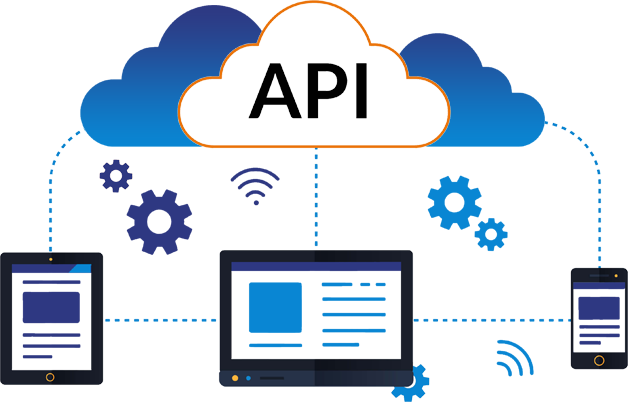The Six Most Important APIs for Software Developers
 Manu Sharma
Manu Sharma
An API or you can say application programming interface is a section of code that serves as a communication channel between two different software applications. Put another way; it's a software user interface instead of a person. For decades, software engineers have integrated software through APIs. An application programming interface is swiftly taking over the hardware and software industries due to how they may hasten the development of cloud-based technologies and support companies in delivering superior consumer experiences.
A crucial fact regarding API development is that not all software integrations are the same; thus, not all APIs are the same. Based on various protocols, functions, and access levels, there are several categories of APIs. APIs can be divided into groups according to various protocols, functionality, and access levels. Picking the appropriate type is crucial if you want your business's APIs to function as intended. For instance, an API intended for internal usage only by your staff will likely have a different build than one that shares data with the public.
We'll explain the various API types in this manual so you'll know which to use to exchange data about your business effectively and securely.
APIs for Software Developers
1. Twitter
By allowing your users to share your application with their followers, the Twitter API can help you reach a wider audience. Even if you can only tweet with their permission, having their credentials on hand helps expedite the process when a user is ready to share their data with the world. Some may recall Twitter's developer-unfriendly set of guidelines from a few years back. Although it has taken command of the user experience, the company's sphere of influence is undeniable. It has a large user base, making it an API worth learning about.
2. Facebook
Facebook integration is a no-brainer for services with many users, so why not? Facebook has nearly one billion active users, so chances are strong that your target market is on there. For social login, sharing, and app monetization, Facebook is a viable option.
There is still plenty of opportunity for a robust developer ecosystem despite the company's recent restrictions on the data that may be made available to apps Wit.ai, Facebook's natural language processing platform, and Parse, its mobile backend owned by the social network. In the Facebook API, you'll find many exciting things to explore.
3. Stormpath
Use an existing registration system on your website if you need it for any registration. Secure user management API Stormpath includes Facebook sign-in support as part of the core functionality. If you're using a social network for your identification, developing on top of Stormpath rather than keeping up with the ever-changing social API landscape makes sense.
In addition, it provides a mechanism for managing user profiles, authorization roles, and the management of forgotten passwords. As well as GitHub and Facebook, Stormpath also supports Google and LinkedIn. OAuth.io, which collaborates with Stormpath for its non-login capabilities, provides Twitter support.
4. Google Maps
The Google Maps API gives users the privilege of nearly limitless geographic aptitude at their fingertips. Search nearby restaurants, niche shops, and whatever is close to your location. You may have been using this API example more often than you realize. Each time you glimpsed business hours, reviews, contact information, or anything of that nature from that handy box on your screen that is the Google Maps API in action. To that effect, clicking on the map icon in that box will open the Google Maps app for you or take you straight to the Google Maps website.
5. Amazon S3
After the prototype stage, you'll need storage choices that go beyond your local system. In some cases, shared hosting or even dedicated drives won't be enough to store all your data. Permanent storage may not even be an option in many cloud hosting circumstances. An object storage service like Amazon S3 is required for a dependable and scalable file system. This provides useful features such as the ability to upload straight to your storage bucket and options for file replication and versioning. S3-compliant services are available from a number of other providers, including Amazon. If you aren't utilizing Amazon for cloud computing, check with your provider to see if object storage within the same data center can improve your app's performance.
6. Google Apps
Many non-technical coworkers use Google Apps in their daily work, so you may find yourself assisting them. This could include sending an email or adding someone to your beta version of a spreadsheet when new things are added. The majority of these operations can be automated using platforms like Zapier and IFTTT. This API allows you to connect Google Apps to your company's systems for everyone else.
Final Words
We've included a list of APIs above to understand better the importance of APIs in the software development process. Most of the technology we use daily has an application programming interface (API). APIs and data integrations are a given for any project you're working on now or shortly. APIs allow software developers to connect their apps with other APIs to build a streamlined workflow that is simple to use, such as exchanging data between apps and integrating databases. Find a Software development company that can deliver excellent API integration services if that's something you're also looking for.
Subscribe to my newsletter
Read articles from Manu Sharma directly inside your inbox. Subscribe to the newsletter, and don't miss out.
Written by
